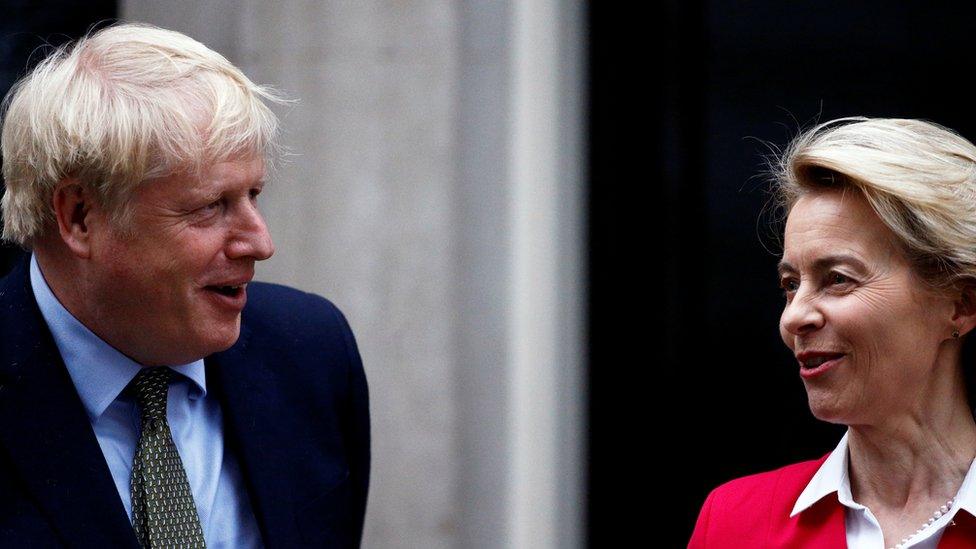Brexit: UK and EU make one last push for trade deal
- Published

Boris Johnson and Ursula von der Leyen when they met earlier this year
It's not over, not yet.
The two sides in this complicated and drawn out process have agreed that it is worth trying one last time to find a way through their profound differences.
But the statements from the prime minister and the EU chief, Ursula von der Leyen, signal clearly that a trade deal is out of reach right now - spelling out that if no-one budges in the next few days, it's simply not going to happen.
A feature of Brexit negotiations has often been the last minute stand off, the political emergency, before suddenly, lo and behold, a deal emerges from the wreckage.
By Monday night, that tradition may have been proven again.
Yet it seems there is a lot more to be done than ironing out a few last minute glitches.
The UK believes that after months of talks, the EU - pushed by some member states - has hardened its stance on the same old stumbling blocks.
And that's pushed a deal that was in reach just a few days ago, further away.
Mechanics and conundrums
For both sides, not reaching a deal would be a political failure.
The prime minister has warned that it might not come to pass and has tried to assure the public about what would happen if it can't be done.
But the UK and the EU have both said on repeated occasions that a deal is what they want - eager to avoid the disruption of leaving the transition period at the end of this year without arrangements in place.
And their negotiating teams have worked for months on the mechanics of how the conundrums over our departure from the trading bloc could be resolved.
But the two sides are still stuck over the fundamental, political question - who really calls the shots.
It was Theresa May who coined the phrase, "no deal is better than a bad deal".
In the next 48 hours, Boris Johnson and the European Union have to decide if they want to test if she was right.